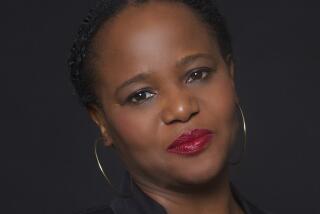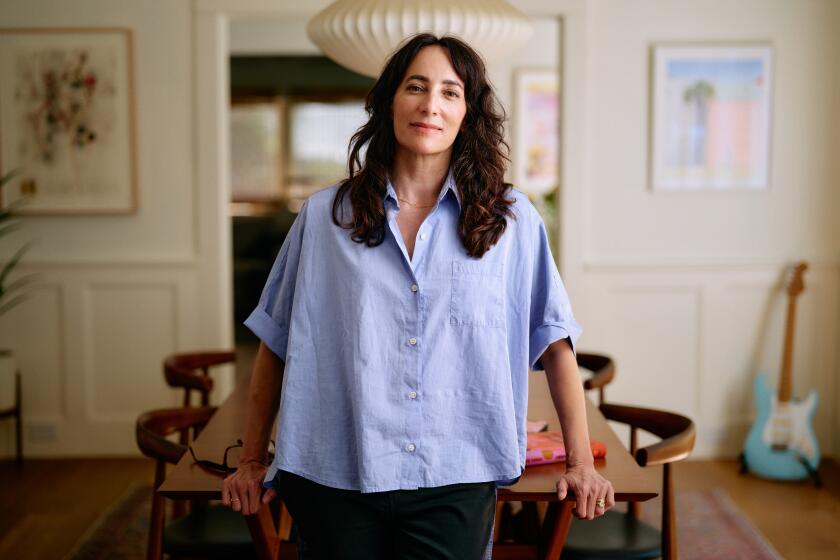Is it time to rediscover Conrad Aiken?
The life of writer Conrad Aiken, like the best of his work, was a great circle. It began in Savannah, Ga., in a red brick row house at 228 E. Oglethorpe Ave. After years in New England and abroad, he returned decades later to that quaint, crumbling Southern metropolis to live in a house adjoining the one he grew up in as a child — the same street, the same block, the same row, with the same brick sidewalk underfoot, besieged by the same specters.
At age 11, he had been forced to leave his childhood home and move to Massachusetts after stumbling upon his parents’ dead bodies. His father had shot his mother and then himself. This left a psychic wound that would haunt Aiken for the rest of his days. It is on this scar tissue that his work is largely writ.
Aiken, the 1969 recipient of the National Medal for Literature, was best known as a poet. His 1929 collection, “Selected Poems,” won the Pulitzer Prize. He went on to serve as the poetry consultant to the Library of Congress (now the poet laureate) in the early 1950s. In 1955, his “Collected Poems” won the Bollingen Prize. Just before his death in 1973, Gov. Jimmy Carter made him Georgia’s poet laureate. Though poetry was Aiken’s main mode of expression, he was as gifted as a critic, novelist and short story writer. As one of the first authors to grasp the relevance of Sigmund Freud to literature, his work often coupled an exploratory push forward with a coiling back inward to the past, to the self, to consciousness.
It has been argued that Aiken’s interest in consciousness and psychoanalysis stemmed from his need to come to terms with how this early trauma affected and directed the rest of his life. Regardless of the reasons, though, there is no denying that consciousness was Aiken’s major thematic preoccupation. When asked if he had been influenced by Freud, Aiken responded, “Profoundly, but so has everybody, whether they are aware of it or not.” Many of the modernist writers were fascinated with consciousness, but none explored it as comprehensively as Aiken. In his work, he acted as both analyst and patient, diving into the oceans of his own consciousness, plumbing their depths.
On James Joyce’s deathbed, the author of “Ulysses” was reading Aiken’s poetry
I first encountered Conrad Aiken in the 1920s literary magazine the Dial, hunched over a machine reading microfilm in the New York Public Library. At the same time, I was reading about him in the memoirs and biographies of the modernists. I read items — some undoubtedly exaggerated, others perhaps apocryphal — about how he introduced Ezra Pound to T.S. Eliot (so without him, the world would be sans “The Waste Land”); about how he’d written a book that Freud kept on his desk, which some were claiming was Freud’s favorite novel (Aiken’s second novel, “Great Circle”); about how H.D., the modernist poet, had actually attempted to get him psychoanalyzed by Freud (though this, unfortunately, never came to fruition); about how he had played a major part in solidifying Emily Dickinson’s place in the canon (as the editor of one of the early posthumous collections of her poems); about how he recognized the genius of William Faulkner as early as 1927 (seeing through the flaws of “Mosquitoes” and predicting the future prominence of the man of Yoknapatawpha County); about how, on James Joyce’s deathbed, the author of “Ulysses” was reading his poetry (specifically, “The Coming Forth by Day of Osiris Jones”); about how he not only mentored Malcolm Lowry, but served in loco parentis for the young writer who would go on to pen “Under the Volcano” (and whose first novel, “Ultramarine,” was an admitted imitation of Aiken’s own “Blue Voyage” — so much so that Aiken had joked that Lowry should just call it “Purple Passage”).
Yet, for all the interesting tidbits I discovered about his life, it was his work that really wowed me, leaving me breathless in a way few authors ever have. I devoured the poems, the stories, the novels, and “Ushant,” his “naughtybiography” (a pun on “autobiography”). The sentences were like music, spiraling symphonies; the form seemed meticulously designed and, simultaneously, tossed off in the most natural way; the exploration of consciousness always felt both intimate and universal. To me, he belonged with Joyce, Woolf and Eliot, yet I never saw him among their ranks.
Harold Bloom was a rare exception. He listed Aiken among his 12 great American poets born in the last three decades of the 19th century, situating him among the major names of American poetic modernism. Bloom admitted, though, that “Aiken never was much in fashion, and he seems now to have very few readers indeed.” Why, I wondered, had Aiken never been much in fashion?
Some critics believed this literary “navel-gazing” had nothing to say to a larger audience.... I couldn’t disagree more
There are a number of potential explanations for this. He kept the literary community at arm’s length and avoided going out. As his friend and literary executor, Joseph Killorin, explained, “He could reveal himself in writing daringly, but he was terrified of appearing in person.” Also, his work was accused of delving too deeply into his own consciousness, alienating potential readers. Some critics believed this literary “navel-gazing” had nothing to say to a larger audience, that he seemed to just be working out his psychological issues on paper, with no interest in plot or message. I couldn’t disagree more: Exploring the micro of his own consciousness — “that small bright circle … beyond which lies the dark,” as he called it — was the only way to properly explore the macro of big-C “Consciousness.” How else could one attempt the Herculean labor of exploring consciousness without first and foremost laying one’s own consciousness bare? Yet some critics argued that his work was disjointed and ambiguous. In the 1920s, ’30s, and ’40s, when he wrote the majority of his work, much of what was in vogue at least pointed toward the political and, often, was outrightly didactic. Aiken refused didacticism. He thought that if he was going to explore the nature of consciousness through his literature, then the work would have to be, like consciousness itself, fragmentary, ambiguous and always in flux.
To translate the consciousness of modern man in every form of literary art — poetry, fiction, autobiography, criticism, drama — is what Aiken attempted. Did he achieve his goal? It can merely be said that he approached it, and in doing so got closer than any other author I can think of to an understanding of consciousness and an expression of that understanding in art. But of course he would fail. It’s written into the title of that experimental autobiography, “Ushant,” which takes its name from a treacherous island whose rocky shore ships were wary to approach, but which is also a pun on the perpetual disappointment of any attempt to wholly understand ourselves, or others, or, in fact, anything: “You shan’t!” After all, beyond which lies the dark …
In 1973, after a long life in letters, Aiken died in his hometown of Savannah, where he was buried in the beautiful, macabre Bonaventure Cemetery, under giant oak trees draped in Spanish moss, next to the graves of his parents. His gravestone takes the form of a bench on which is written: “Cosmos Mariner — Destination Unknown.” With this epitaph, it is apparent that even in death he continues pushing out in his quest and one can only assume by the use of the word “mariner,” coiling back into his own consciousness, for the sea always to Aiken represented the depths within one’s self.
While Aiken was still alive, Malcolm Cowley, in a 1952 issue of “Wake,” speculated that “the discovery — one can hardly call it rediscovery — of Conrad Aiken is coming soon.” In his book on Aiken in 1978, critic Harry Marten mentioned Cowley’s optimistic statement and lamented that the discovery “seems as far away as ever.” With much of Aiken’s work now out of print and his name most often encountered as a footnote in other writers’ biographies, Marten couldn’t have imagined how much further away it would seem in 2017.
Malone is the editor of the Scofield, whose sixth issue, “Conrad Aiken and Consciousness,” includes contributions from critic Harold Bloom, philosopher Peter Singer and Aiken biographer Edward Butscher. It will be available as a free downloadable PDF at thescofield.com
More to Read
Sign up for our Book Club newsletter
Get the latest news, events and more from the Los Angeles Times Book Club, and help us get L.A. reading and talking.
You may occasionally receive promotional content from the Los Angeles Times.









